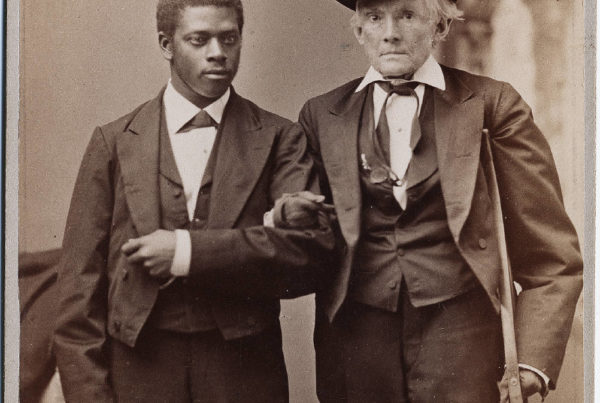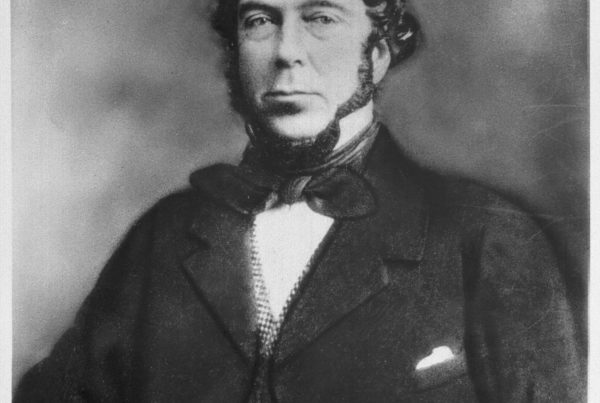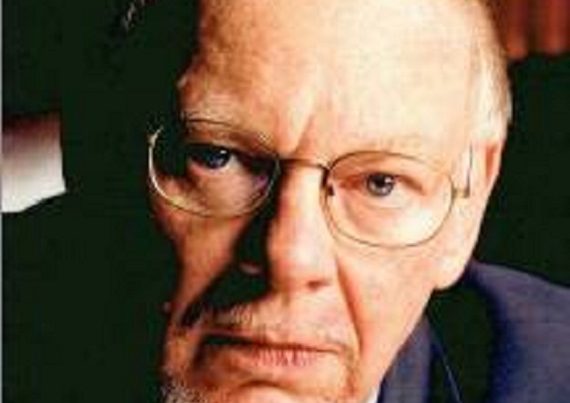“. . . a republican government, which many great writers assert to be incapable of subsisting long, except by the preservation of virtuous principles.” — John Taylor of Caroline
The United States Senate, one summer morning near the end of the session in 1842, was busy with routine reception of committee reports. The Committee on the Judiciary reported favorably on a bill to pay the estate of William Hull, whose heirs had petitioned for compensation for his government service. Hull had held appointments as General in command of the Northwest and as Governor of Michigan Territory at the beginning of the War of 1812.
Mr. Calhoun of South Carolina shattered the quiet routine of the Senate. He rose to express amazement at what he had just heard:
He was, in the first place, surprised that the representatives of General Hull could ever think of presenting this claim to Congress. He would not be more so, if the representatives of [Benedict] Arnold should present a claim for his pay as a general in our service, after he had committed his treason, on the ground that he had held the commission of a general, which had not been revoked.
The deep and universal public condemnation of General Hull had never been reversed and never would be, Calhoun said. It was a matter Calhoun knew well, having at the time been a member of the House of Representatives straining desperately to support the war effort: Hull had surrendered his troops and the Detroit fortifications on the first appearance of the British, without firing a shot in resistance. He had blamed his act on the lack of preparation and support by his superiors—something which might excuse defeat but could not excuse cowardice. Hull was court-martialed and ordered to be shot, though President Madison had granted a reprieve.
Calhoun asked the Senate:
How could his pay as Governor be allowed, when there was, for the time, no such Territory as Michigan? It had, by his own act, become a British Province and remained so till it was re-conquered by the army under General Harrison. With what show, then, of justice or equity, could he be paid for governing a territory that did not exist, and which had ceased to exist by his own act? The error of the committee consisted in supposing that the commission—the mere paper and wax—and not the service, gave the pay.
What a contrast, Calhoun continued, this situation presented with the conduct of General Andrew Jackson. A federal judge had fined Jackson $1,000 for supposed damages to certain private property in preparing the defenses of New Orleans. Jackson had paid the fine from his own pocket and got on with the business of winning the battle and concluding the war with a great victory. Yet Jackson had never been compensated. “How strange that such unequal justice should be meted out by the committee to General Jackson, who terminated the war with glory, and General Hull, who commenced it with disgrace!”
Calhoun might well have expanded his examples from the history of American republican virtue. George Washington had stood in the Continental Congress in 1775 and acknowledged his acceptance of the perilous mission of taking command of the Continental forces already engaged in fighting with the world’s greatest power. He would accept no pay, Washington said, though he hoped that the Congress would repay his expenses in their service. And at the end of the war, Washington, like the Roman hero Cincinnatus, had disbanded his army and returned to his private life, even though there was plenty of room for dissatisfaction at niggling and inadequate response to his claims.
General Hull’s bill, among other things, demonstrates the difference between Southerners and people from lower New England. Hull was, not surprisingly, from Connecticut, which has supplied a vastly disproportionate share of bad examples in American history: Benedict Arnold, P.T. Barnum, John Brown, William O. Douglas, William F. Buckley, Lowell Weicker, the Bush family, etc. Senator Calhoun, a former Secretary of War, was well aware that Massachusetts and Connecticut had more men receiving Revolutionary War pensions than they had ever had active soldiers, while Francis Marion’s veterans and the heroes of Kings Mountain, who had played a vital part in winning American independence, had never considered patriotism as a claim on the Treasury, but even if they had would lack the proper paperwork. Everyone was aware that Massachusetts had for a quarter century been presenting annually a demand to Congress to be paid for the non-service of its militia in the War of 1812.
The incident of the bill to compensate the Hull heirs illustrates a late phase of the struggle in the American polity between office as an honor and a trust and office as a source of profit. Virtue was obviously already on the defensive in Calhoun’s day, though the Founding generation had had a strong sense that the diminishing of virtue would spell doom for the noble experiment of self-government of the people. Though the need for virtue in the people and in their leaders was a given, the exact connotations of the concept could differ. From the beginning, the New England idea of republican virtue had a commercial, collectivist, government-as-engine-of-prosperity cast which harked back to the Puritan Commonwealth. The more idealistic version below the Susquehanna drew on an idea of the highest patriotism of republican Rome. (Whether the idea was historically accurate or not is another question.) It was no accident that Addison’s “Cato” was Washington’s favorite play and that he was often depicted in Roman garb, that officers of the War of Independence called their veterans group the Society of the Cincinnati, and that the seats of the American governments were called capitols. Indeed Thomas Jefferson modeled the capitol of Virginia on a Roman building he had seen in France.
The idea was this: that to lead the people was an obligation, an honor and a trust, which, properly executed, was the highest example of patriotism and the most worthy of fame. Office should not be a job, a source of profit, or an opportunity for self-promotion. Ambition for glory could be excused as the engine of patriotic effort, but ambition for money and power was defection from republican virtue and signaled a taste for usurpation and corruption. Difficult as it may be to believe today, in the early Republic public office often required a sacrifice of private interests. Many good men found that after one duty-dictated term in the House, their law practice, plantation, or commercial firm had suffered (not to mention their health and disposition) from only a three- month session in the federal city amongst the demagogues, lobbyists, and mosquitoes. Things are rather different these days, when nobody is ever observed leaving Congress less affluent than when he entered. And in the early Republic a former member of the government going on the payroll of a foreign concern or government, if it had even been possible to imagine it, would have been instantly and universally condemned as treason.
The history of national politics up until 1861 is largely the history of a holding action against the “American System,” essentially meaning the use of the government to promote private profit by bounties, grants, tariffs, public debt, bank charters, and other instruments of corporate welfare. A less noticed aspect of the struggle against consolidated government that was lost in 1865, though it loomed large in the minds of contemporaries, was the “spoils of office”—the holding of office itself as a source of profit. As in most all matters, the South clung to older practices: being chosen for public trust was a recognition of achievement and of already-existing status. Increasingly in the North, the office itself was sought as the source of status and the pursuit of office bound up in the power of political party machines to buy votes with public money.
More and more as the 19th century wore on, the New Englanders aggressively claimed virtue as their special possession, with the accompanying disdain for others. New England spokesmen, shortly after enacting a 40 per cent tariff protection for their industries, rose in Congress to declare scornfully that the low price of cotton was caused by Southerners lack of Yankee enterprise. And more and more the sign of virtue became profit-making activity. Whether through genuine private enterprise or rent-seeking (usually some combination of both) did not make much difference.
The belief in superior virtue and virtue as profit-making spread and gathered power over Northern society until it achieved consolidation and institutionalization with Lincoln—the first President elected with no record of achievement or service to the commonwealth, but solely through political management and the promise of payoffs—favorable legislation AND public jobs and contracts. Lincoln’s victory not only was a coup for the “American System,” establishing a permanent system of welfare for industrialists and bankers. It also brought on a revolutionary expansion of the spoils system.
Whether the Republicans started and kept up the war deliberately for the patronage is debatable, but there is no doubt they embraced their opportunity with the greatest relish. Lincoln’s war was a source of profit to large numbers of Northerners quite aside from favorable legislation—a vast array of contractors (some of whom made killings that founded fortunes that still exist today) and beneficiaries of the public payroll. (The Confederate army took new recruits into veteran units from their home territory. The U.S., every time new recruits or conscripts were scraped together, created a new regiment of amateurs. It was not a good idea from the military standpoint, but it was great politics—you could buy a lot of support for the party with new officers’ commissions and supply contracts.)
The corruption of the Grant administrations and the Reconstruction state governments was simply a continuance of the same game, without the excuse of shooting war. There followed rapidly a vast pension system for those who had fought to overcome “the rebellion.”
For decades Union army pensions was one of the biggest items in the budget. It was the first great American entitlement cornucopia. Little distinction was made between men who had fought the whole war and those who had had on the uniform for six months, or three months, of static service. The paper and wax was all.
In the late 19th and early 20th century, pecksniff do-gooders promoted “civil service reform,” but about all that accomplished was to replace political hacks in government office with unremovable tinpot tyrants determined to use the government to improve the citizens whether the citizens wanted to be improved in that particular way or not. And so it went, until our own day. Americans no longer have a concept of responsibility in public office. The press reports that General Colin Powell is suffering from the “painful blot” on his (inflated) reputation because of his part in bringing on the Iraq debacle. Presumably we are not supposed to condemn lies that are catastrophic for the country, but only to commiserate with the general because his lies have damaged his reputation. Now, as after September 11, 2001, office holders who fail catastophically in their responsibilities to the people are rewarded with promotions, re-election, great increases of money and power, and Presidential medals. It does not even occur to anybody to point out that the pay ought to be for service, not for the paper and wax.






